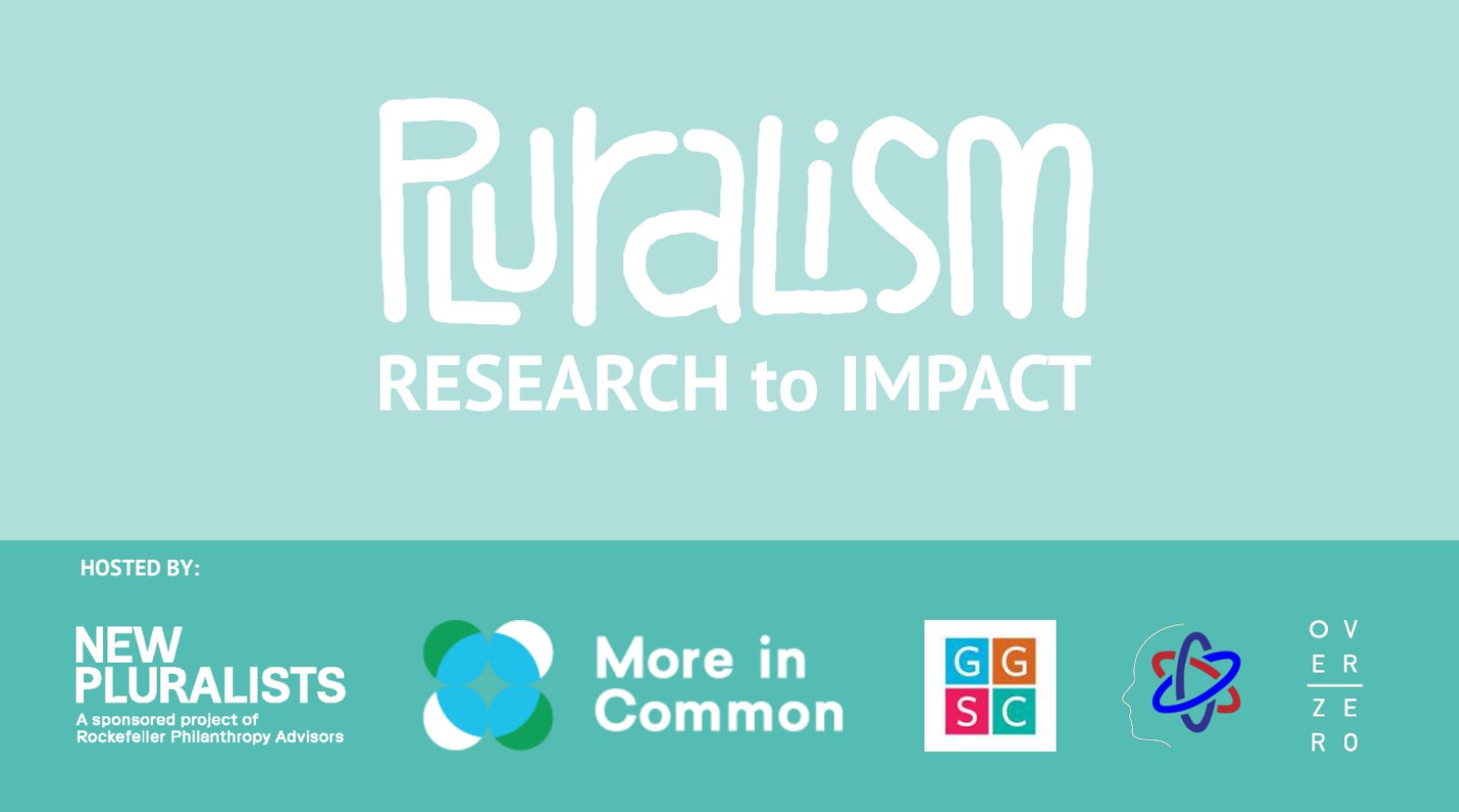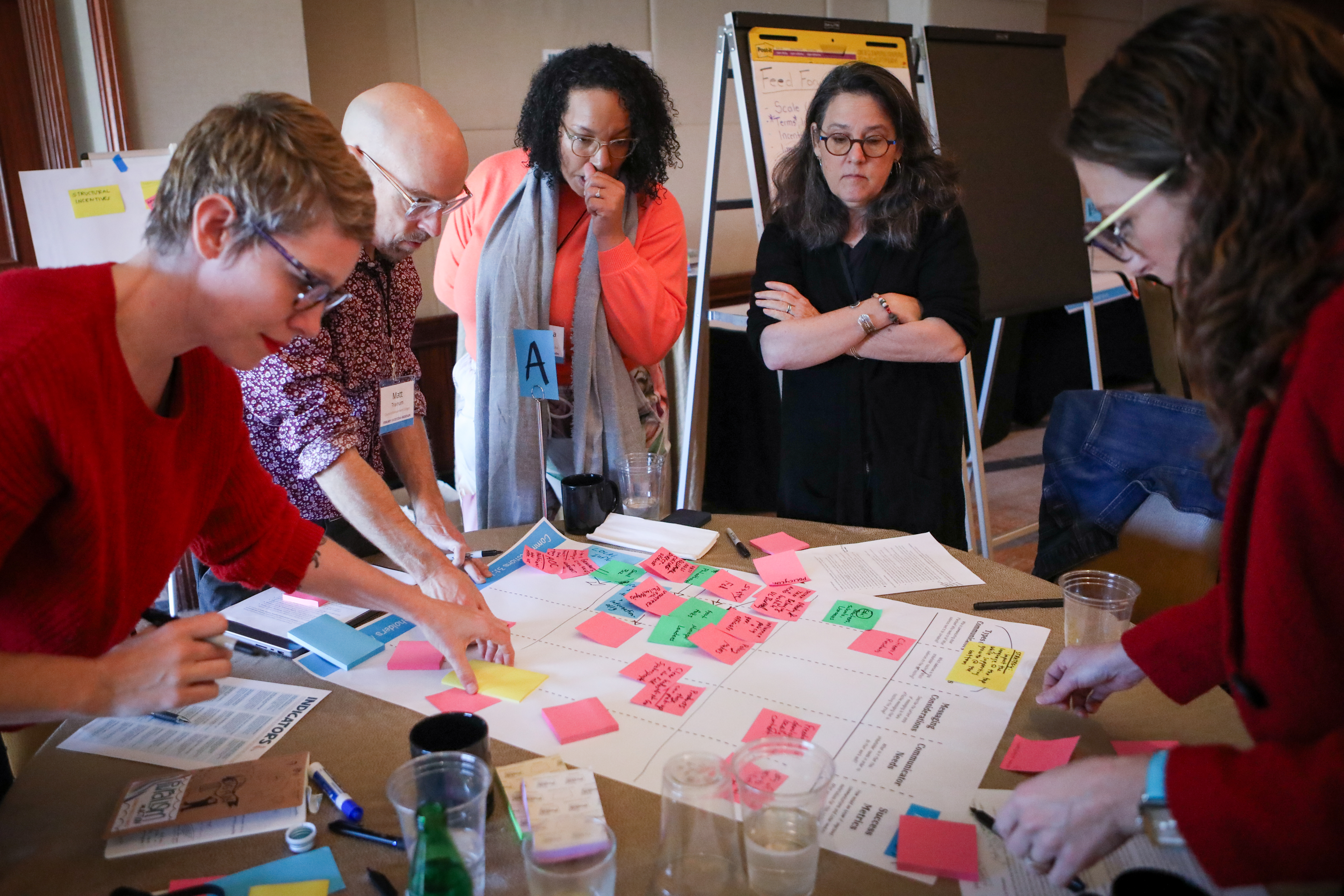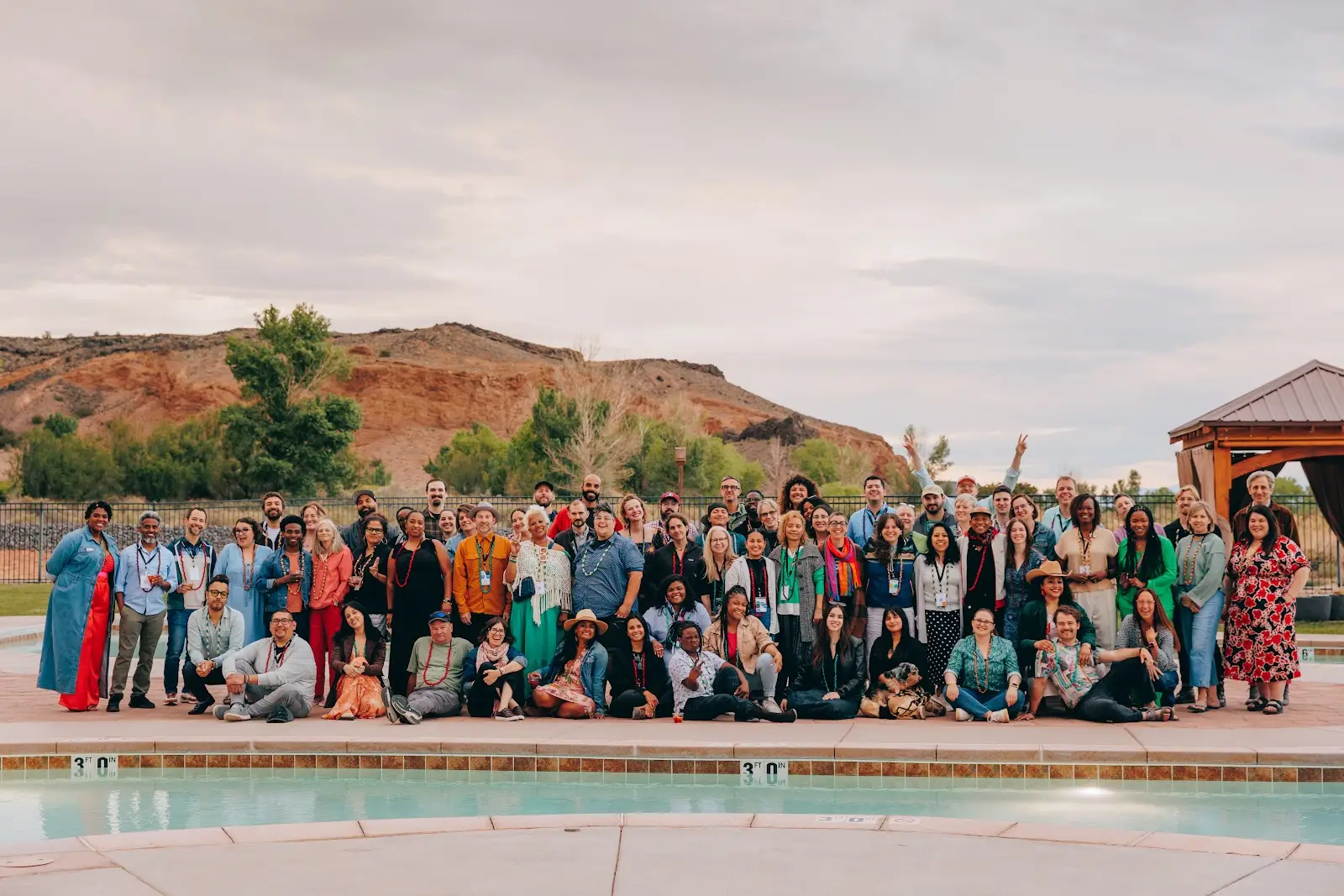Four Steps Toward a Thriving Pluralism Ecosystem
April 7, 2025

While pluralism is an old concept dating back centuries, the pluralism ecosystem is still quite nascent in the U.S. That’s why much of New Pluralists’ early efforts focused on aligning and connecting the network of people and organizations who are discovering what works and bringing pluralism to life in communities around the country.
In September 2023, More in Common, Over Zero, the Greater Good Science Center, Center for the Science of Moral Understanding, and New Pluralists convened 60 leaders to explore current research related to the conditions and practices that enable or disable pluralism in the U.S. and to have an intensive discussion about ways to support a vibrant pluralism ecosystem.
Together, attendees identified opportunities to move the ecosystem forward. Participants agreed there are four critical areas of the ecosystem that must be strengthened to better support people and organizations advancing pluralism in the US:
Raising awareness of pluralism’s importance and meaning;
Building stronger partnerships between practitioners and researchers;
Increasing collaboration around measurement and evaluation; and
Organizing the evidence around pluralism
Raising awareness of pluralism’s meaning and importance
Attendees agreed that our ecosystem’s broad goal to foster a more pluralistic America faces challenges if the concept of pluralism remains obscure or is seen as exclusive to one political party, elites, or select fields and academic disciplines.
They acknowledged we need creative strategies to enhance the awareness and accessibility of pluralism, and we must broaden the tent of individuals and organizations who see themselves in our movement. By dispelling preconceived notions about what pluralism is or isn’t, and by demystifying the work of pluralism in our communities, attendees felt more confident in being able to affect real change.
Building stronger partnerships between practitioners and researchers
Pluralism relies on the hard work and expertise of these two different disciplines with two different areas of focus: research and practice.
Researchers offer evidence-based insights into key issues like polarization and intergroup relations, while practitioners bring critical real-world experiences that test and contextualize these findings. At best, the work of one reinforces the other, making the whole ecosystem stronger. Too often, though, both sides face challenges in communicating their experience and translating their findings for the benefit of all.
Attendees noted that in strengthening connections, we can create a more cohesive ecosystem where research and practice drive lasting change together.
Enhancing collaboration on measurement and evaluation
Progress toward a more pluralistic society depends on a clear understanding of the strategies and tactics that work, in what conditions, and why — as well as the ones that don’t. Attendees noted that some of the metrics available to practitioners don’t fully capture the power and promise of pluralism strategies, most of which are highly relational. Innovation in measurement is also needed to help us observe and learn what makes a practice successful.
Attendees recognize a need across the pluralism ecosystem to improve the measurement and evaluation of both research and practice. That means connecting researchers, practitioners, and funders, agreeing on goals, and sharing best practices — all areas of emphasis for our ecosystem.
Organizing the evidence base
Finally, attendees agreed that we must do a better job of collecting, synthesizing, organizing, and distributing insights that derive from both research and practice. This will help to create more collaborative outcomes, build collective intelligence, and get deep buy-in across communities.
Evidence for pluralism is deep and wide — encompassing expertise as diverse as intergroup relationships, political polarization, the psychology of prejudice, conflict resolution, and more. Such knowledge has the potential to inform and strengthen the work of the whole ecosystem, including communicators and funders — but only if it’s accessible.
While these areas of emphasis were initially developed in 2023, the work of bringing them to life continues. These four objectives remain a focal point of the ecosystem. Progress on each of them is progress toward the shared goal across our organizations of elevating not just the concept of pluralism, but also its practice and impact in civic life.
PS: The 2023 Research to Impact event inspired a new gathering that took place in January 2025: Pluralism in Action. You can read our interim Executive Director Liz Vogel’s reflections on the event.


